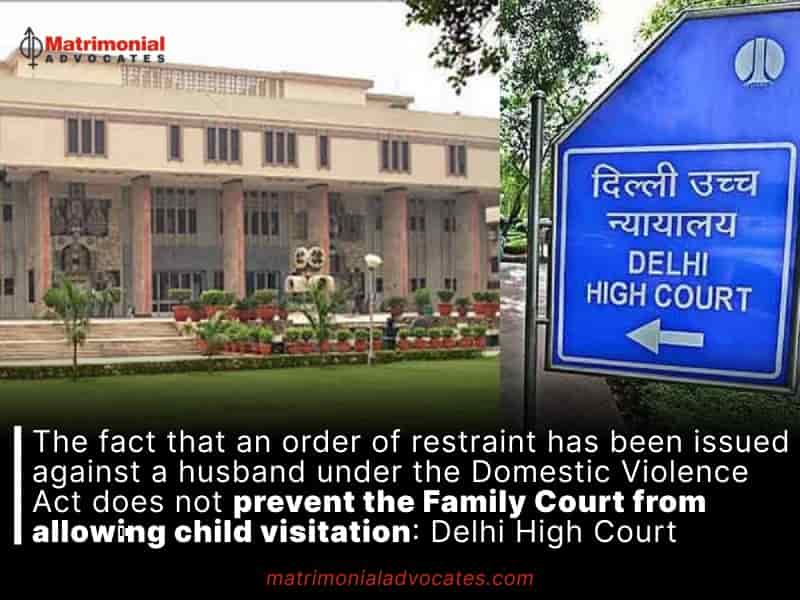
To prevent any inconsistencies or contradictions, the Delhi High Court has emphasized the need for a harmonious interpretation of the Protection of Women from Domestic Violence Act, 2005 and the Family Courts Act, 1984, which can potentially conflict with each other.
Justice Yashwant Varma cited the 2017 Supreme Court judgment, Amit Kumar and another v. Charu Makin, which highlighted the aim of the Family Courts Act to establish specialized courts for addressing issues outlined in Section 7 of the Act.
In contrast, the Protection of Women from Domestic Violence Act, 2005 was established to prevent incidents of domestic violence and protect women from being victims of such violence. A wife filed a plea challenging a Family Judge’s decision to grant her husband supervised visitation rights within the court complex. The wife contended that this order contradicted the restraining order issued by the court handling her application under the Domestic Violence Act, 2005.
The Court noted that the Domestic Violence Act order was solely based on the allegations made by the wife against her husband and did not include any accusations of cruelty or physical abuse towards the children.
Considering the petitioner’s allegations, the Court acknowledged that the respondent was prohibited from communicating with the children or the complainant in any manner as per the order passed during the Protection of Women from Domestic Violence Act proceedings. The order also explicitly directed the respondent to refrain from disturbing the custody of the children.
The Court clarified that the order passed under the Protection of Women from Domestic Violence Act did not impede the authority and jurisdiction of the Family Court to decide on the father’s request for interim visitation rights for the minor child.
The Court emphasized that the provisions of the Domestic Violence Act did not deprive the Family Judge of the power to make arrangements for visitation rights as specified in the impugned order.
The Court reiterated that the two statutes should be interpreted harmoniously to avoid any inconsistencies or conflicts.
As a result, the Court dismissed the plea.
Source: https://www.livelaw.in/news-updates/delhi-high-court-domestic-violence-act-family-courts-act-harmonious-construction-197154





